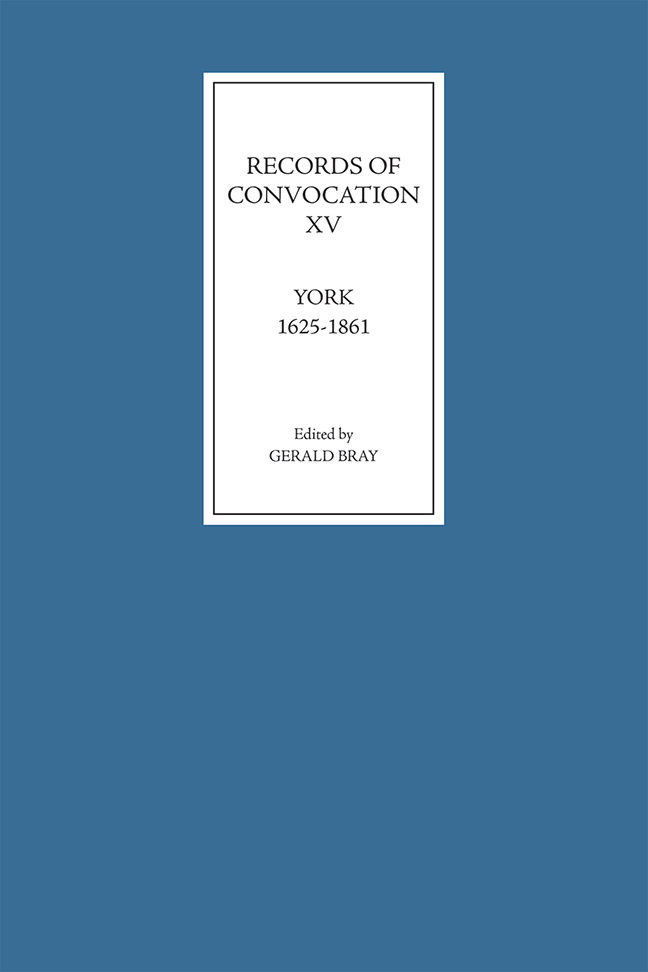The end of the Durham protest
Published online by Cambridge University Press: 11 January 2024
Summary
This is not recorded in the convocation book, but an account of it was given by G. W. Kitchin, the then dean of Durham, in Records of the northern convocation, Surtees Society CXIII (Durham, London and Edinburgh, 1907), pp. xlv-xlvi as follows:
…the venerable voice of protest ceased in the days of Archbishop Thomson. The actual end of it was this: when the last protester had read his paper according to form, and had requested that, as usual, it should be entered among the acts of convocation, the archbishop, instead of ordering it to lie on the table, with a gesture of high disdain, after saying in the old formula, 'I regard this to be frivolous and vexatious, and in no way pertinent to the present business,’ threw the documents on the floor of the house, as a mean thing no longer to be treated with the least respect. Henceforward, the protests were no longer read or offered, and the ancient usage came to an end.
The dean added in a footnote: ‘I have the description of this scene from the kindness of Mr Hudson, the registrar of convocation, an eye-witness.’ No date is given, but Archbishop Thomson (1862-90) first appeared at the roll call in convocation on Wednesday 8 April 1863, and it was probably on that day that the above incident occurred. It was not the end of all friction between York and Durham, however, which in some respects continues to the present day. See B. Till, York against Durham — the guardianship of the spiritualities in the diocese of Durham sede vacante, Borthwick Paper LXXXIV (York, 1993).
- Type
- Chapter
- Information
- Publisher: Boydell & BrewerFirst published in: 2024



